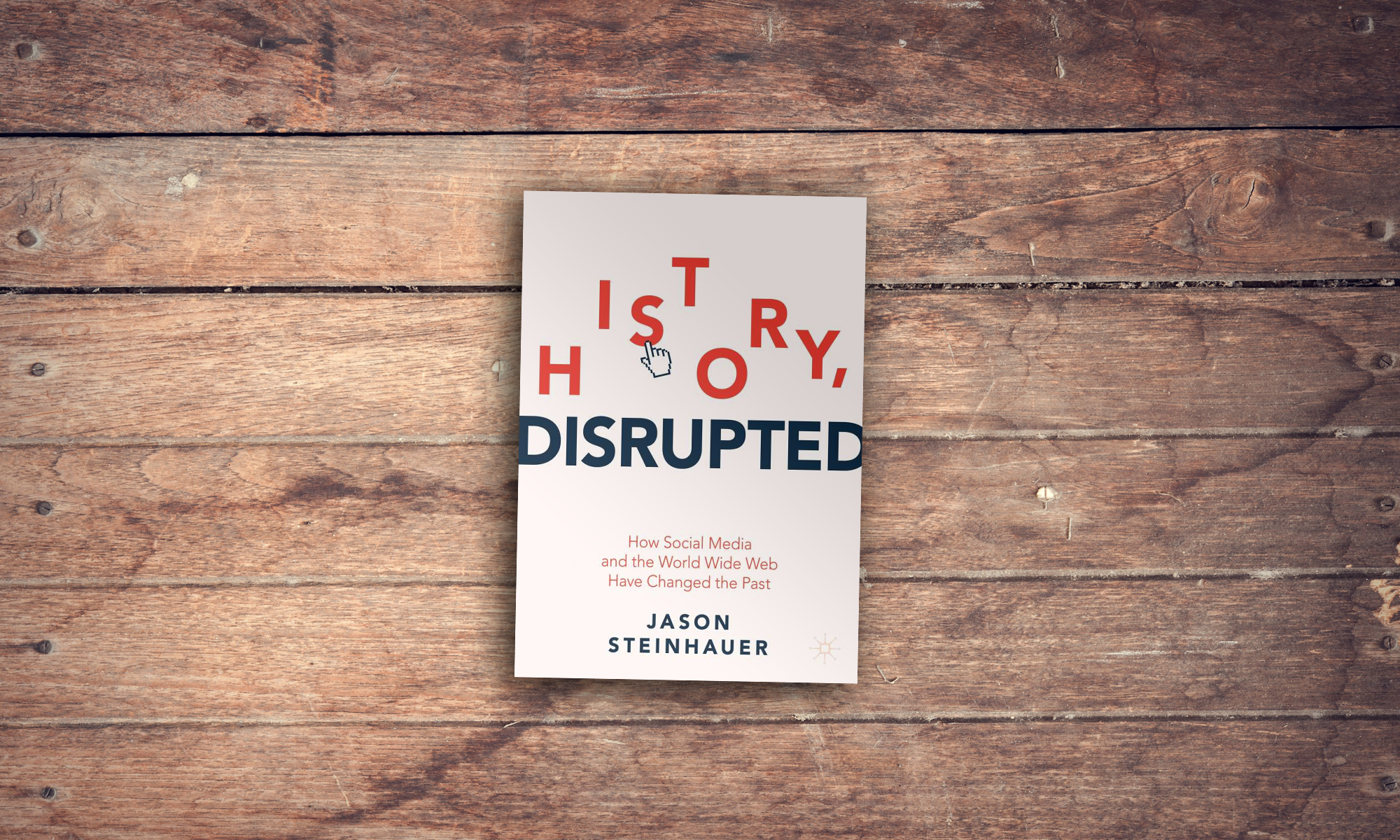Book Review: History Disrupted by J. Steinhauer
In his first book “History Disrupted”, J. Steinhauer discusses how the internet, social media, Wikipedia and other media formats have changed how we perceive History. He calls this e-history, basically the way we communicate history over social media. I have read the book and here is what I think.
Social Web vs. History
His basic argument is, that History and the Social Web work very differently. In his opinion, History is expert-centric, an always-evolving intellectual pursuit, time-consuming, and resting on intrinsic values. On the other hand, the Social Web is user-centric, a data-driven commercial enterprise, instantly gratifying, and privileges extrinsic values.
Here lies the problem. History is in its purest form not compatible to modern-day communication methods. Also, it probably never will. The main part takes a deeper look into what ways e-history has found to compromise between the study of the past and the Social Web.
Forms of e-history
He starts with the crowd-sourced past and the example of Wikipedia. Here, the communication of the past was suddenly not protected by experts anymore. Also, other examples concern technological induced nostalgia, like “on this day”-features or virality by emotion-evoking images on platforms like Twitter. He goes on with examples from platforms like Instagram, media like podcasts and even e-history made by Artificial Intelligence.
In all his examples the author shows how history-interested people find ways of communicating the past through various platforms. Also, he stresses how this communication is far from what a historian would call History. It is rather an algorithm-determined representation of it. He rightfully makes the claim that people outside of academia absorb these information and accept them.
Conclusion
The author uses a lot of references throughout his book. He also references to what “his friends” have told him as an argument why certain things are relevant or not. I found the latter references out of place and unnecessary. In the end, this book tries to explain a basic idea: To what has public history came to in the last twenty years and where will it go. He draws a pretty grim picture in which AI algorithms already create public history without any supervision. I would like to disagree on this idea.
Sure, the Social Web has also hugely transformed how we communicate the past (or actually everything for that matter). Not all inventions are going into the right direction. In my opinion it is not the problem how history is communicated on the Social Web by non-historians. It is not a problem, because what we see now (and what he describes) is nothing that replaced a better communication with the public that was prior in place. It is rather that the platforms offer a new way of communicating, that was not possible before. Sure, not everything is good, but we are getting there.
Jason Steinhauer is a Global Fellow at the Wilson Center in the U.S.A. He has his own website.








